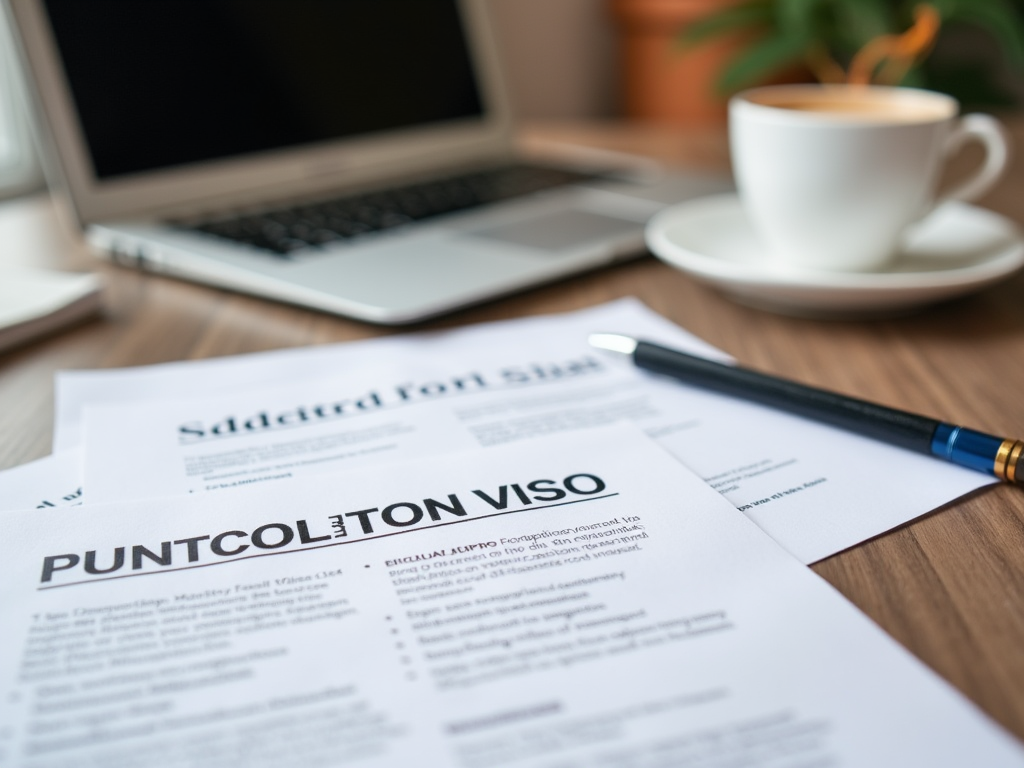A freelance visa in Dubai allows skilled professionals to live and work independently in this vibrant city. This article outlines a clear and comprehensive step-by-step process to apply for a freelance visa, ensuring you understand the requirements and procedures involved. From gathering necessary documents to obtaining the visa, we will explore each essential step in detail, helping you navigate through the application process smoothly.
Understanding the Freelance Visa

Before diving into the application process, it’s crucial to understand what a freelance visa entails. The freelance visa, also known as the Dubai Freelancer Permit, allows individuals to work on a freelance basis in various sectors, including design, consulting, and technology. It is specifically designed for those looking to break free from traditional employment arrangements and enjoy the flexibility of freelance work while residing in Dubai. This visa also enables you to sponsor your family and opens up various avenues for business expansion. Additionally, the application process is relatively straightforward compared to other visa types, making it an attractive option for many professionals. Lastly, having a freelance visa enhances your credibility as a professional in Dubai’s competitive market.
Step 1: Gather Required Documents

The first step in applying for a freelance visa is to gather all necessary documents. Having the right paperwork prepared will make the application process smoother. The essential documents typically required include:
- Copy of your passport (valid for at least six months)
- Passport-sized photographs (usually four)
- Proof of freelance work (such as contracts or letters of intent from clients)
- Educational qualifications and relevant experience certificates
- Completed application form (available online)
Ensure that all documents are clear and legible. Additionally, if your documents are not in Arabic or English, consider having them translated by a certified translator. Familiarizing yourself with these requirements ahead of time will save you from unnecessary delays and complications when submitting your application.
Step 2: Choose a Free Zone
Dubai offers several free zones that cater to freelancers, each with its own specific regulations and benefits. Selecting the right free zone is crucial as it defines the scope of your freelance activity. Some popular free zones for freelancers include:
- Dubai Media City: Ideal for media professionals and creative freelancers
- Dubai Technology Entrepreneur Centre (DTEC): Suited for tech entrepreneurs and startups
- Dubai Design District (D3): Focused on design-related fields such as fashion, art, and architecture
- Dubai Multi Commodities Centre (DMCC): Perfect for traders and business consultants
Research each free zone extensively to understand their requirements, benefits, and any restrictions. Once you choose the right free zone that aligns with your work, you can proceed with the application process.
Step 3: Apply for your Freelance Visa
Once you’ve gathered your documents and selected a free zone, it’s time to initiate your visa application. Most free zones allow you to apply online through their official websites. The application process generally includes the following steps:
- Fill out the online application form with accurate personal and professional details.
- Upload the required documents along with your application.
- Pay the necessary application fees, which vary depending on the free zone.
- Submit your application and await a confirmation of receipt.
Once submitted, the authority will review your application. It’s advisable to keep track of your application status through the online portal. The waiting period may take anywhere from a few days to a couple of weeks, depending on the free zone and the completeness of your application. Ensure that your contact details are updated to receive notifications regarding your application status.
Step 4: Obtain your Freelance Visa and Residency Permit
Upon approval of your freelance visa application, you will receive an e-visa that allows you to enter the UAE. Once in the UAE, you need to complete the process by obtaining your residency permit. This involves the following steps:
- Undergo a medical fitness test at an approved health center.
- Obtain a police clearance certificate.
- Submit your medical fitness test results, police clearance, and other required documents to the relevant authority.
- Pay the residency permit fee.
Your residency permit will typically be valid for one to three years, depending on the free zone regulations. With your freelance visa and residency permit, you can legally stay and operate as a freelancer in Dubai, giving you access to its thriving market.
Conclusion
Applying for a freelance visa in Dubai is a systematic process that involves careful preparation and adherence to specific guidelines. By gathering your documents, selecting the appropriate free zone, applying correctly, and obtaining your residency permit, you can successfully establish yourself as a freelancer in this dynamic city. Embracing the freelance lifestyle in Dubai can open up myriad opportunities, enhancing your professional growth and personal satisfaction.
Frequently Asked Questions
1. How long does it take to get a freelance visa in Dubai?The processing time can take anywhere from a few days to two weeks, depending on the free zone and the completeness of your application.2. Can I sponsor my family on a freelance visa?Yes, with a freelance visa and residency permit, you can sponsor your spouse, children, and parents to live in Dubai.3. What is the cost of a freelance visa in Dubai?The total cost varies depending on the free zone but generally ranges from AED 7,000 to AED 10,000, including initial registration and other fees.4. Do I need a local sponsor to apply for a freelancer visa?No, one of the benefits of obtaining a freelance visa in a free zone is that you do not need a local sponsor.5. Can I operate in sectors outside my declared freelance activities?It’s advisable to stay within your declared activities as operating outside could lead to legal complications or visa cancellation.
